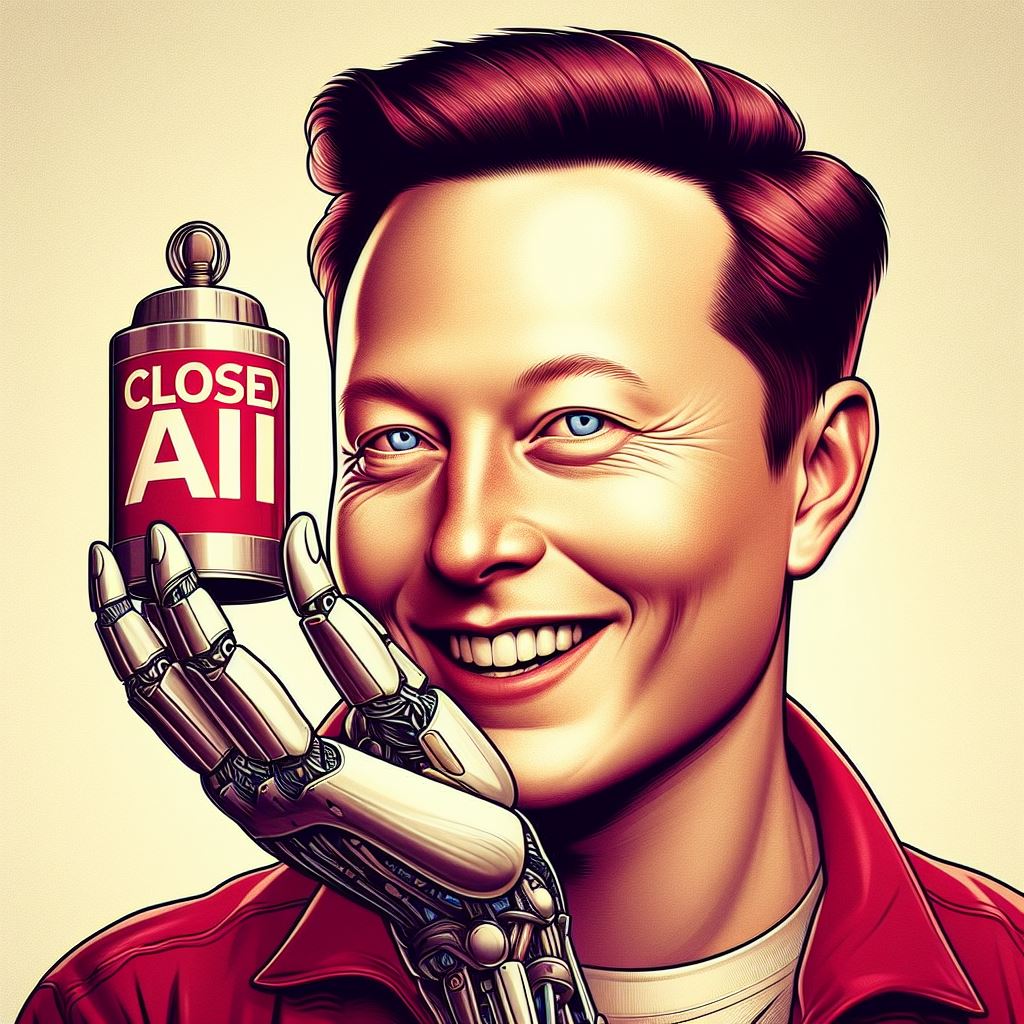Elon Musk, the famed entrepreneur and advocate for responsible artificial intelligence (AI) development, has recently initiated a legal battle against OpenAI, an AI research organization he co-founded. The lawsuit alleges that OpenAI has veered off course from its original nonprofit mission, prioritizing financial gains over its commitment to advancing AI for the betterment of humanity.
Established in 2015, OpenAI was conceived with the noble aim of promoting friendly AI that serves the common good while mitigating potential risks associated with advanced artificial intelligence. Elon Musk’s involvement in the creation of OpenAI stemmed from his deep concerns about the potential dangers of AI and his desire to ensure that AI development remained aligned with ethical principles and societal values.
However, tensions between Musk and OpenAI began to surface in 2018 when Musk announced his departure from the organization. His decision was attributed to growing concerns over OpenAI’s shift towards a more commercial orientation, which seemed to diverge from its original nonprofit ethos. Musk’s lawsuit now represents a culmination of those concerns, as he accuses OpenAI of betraying its founding principles.
The crux of Elon Musk legal complaint revolves around allegations that OpenAI has pursued lucrative partnerships and commercial ventures that are inconsistent with its nonprofit mission. Musk contends that OpenAI’s actions prioritize financial gain over the advancement of AI for the greater good, thus undermining the organization’s original purpose and ethical mandate.
In response to Musk’s lawsuit, OpenAI has defended its actions, arguing that collaborations with industry partners are essential for funding its research endeavors and driving innovation in the field of AI. The organization maintains that its commercial engagements are conducted with careful consideration for ethical guidelines and that they ultimately serve to advance the broader goals of AI research and development.
However, critics remain skeptical of OpenAI’s justifications, raising concerns about the organization’s independence, transparency, and potential conflicts of interest arising from its ties to major tech corporations. Questions linger regarding the extent to which OpenAI’s pursuit of commercial opportunities may compromise its ability to remain impartial and prioritize ethical considerations in AI development.
The legal dispute between Musk and OpenAI underscores broader debates within the tech community regarding the ethical implications of AI and the role of nonprofit organizations in shaping its future. As AI technologies continue to evolve and permeate various aspects of society, issues surrounding accountability, transparency, and ethical standards become increasingly pressing.
While the outcome of Musk’s lawsuit against OpenAI remains uncertain, its implications extend beyond the confines of the courtroom. The dispute serves as a stark reminder of the complexities inherent in navigating the intersection of technology, ethics, and commerce, particularly in the rapidly evolving field of AI.
As stakeholders across the tech industry and beyond await the resolution of the legal battle, they are forced to grapple with fundamental questions about the responsible development and deployment of AI. The outcome of the lawsuit could have far-reaching implications for AI governance, shaping the future trajectory of AI research and the responsibilities of organizations involved in its development.
Lawsuit of Elon Musk is against OpenAI highlights deep-seated concerns about the organization’s departure from its nonprofit mission and its growing alignment with commercial interests. The legal dispute underscores broader debates within the tech community regarding the ethical implications of AI development and the role of nonprofit entities in shaping its future. As the lawsuit unfolds, stakeholders across the tech industry will be closely watching, considering the broader implications for AI ethics and governance.


1 thought on “Elon Musk Wants OpenAI To Change Its Name To ‘ClosedAI’”